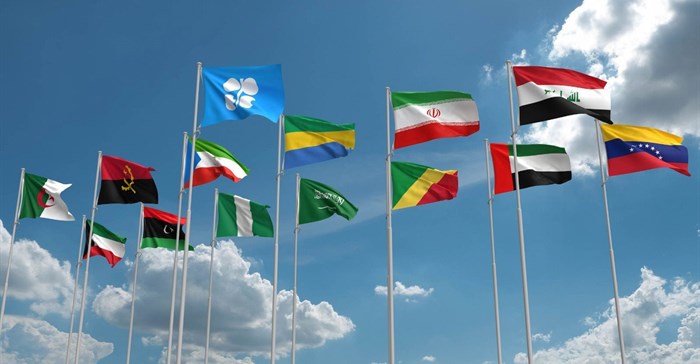
Subscribe & Follow
African Energy Chamber predicts 'relative calm' market

For now, the wild extremes of the pandemic era appear to be behind us. As the African Energy Chamber reports in our newly released The State of African Energy 2024 Outlook, we are forecasting a “relative calm” in the liquids market for the remainder of 2023. We predict that 2024 will stay balanced and flat, with only marginal growth.
A flat market is in store for Africa, as well, our report notes, but with a gradual decline in oil production in 2024.
While, on one hand, a break from dramatic market swings has its appeal, marginal growth and declining production are not exactly welcome news. What’s more, even though the factors that impact oil demand are beyond our control, I don’t believe African oil industry stakeholders should resign themselves to a complacent “it is what it is” mentality about declining production during the next year.
We should be seizing every opportunity to capitalise on our oil and gas resources. Every drop of oil extracted is a pathway to economic growth — revenue that can fund social programs, infrastructure development, and much-needed technology transfers from the international oil companies (IOCs) that invest in Africa.
Even in a period of calm, we must act with a sense of urgency.
Global demand and production
So, what will be driving global oil demand in the short term, absent major events like pandemics or global conflicts?
As our Outlook says, with COVID-19 restrictions behind us, road transportation and aviation-driven liquids product demand — primarily from the US and Asia — will comprise more than half of global demand during the next 18 months.
Another key driver will be industrial demand, particularly from the petrochemical sector in the Middle East, Asia, and the U.S., along with power generation projects.
Our report also considers increasing oil demand in the Northern Hemisphere in the third and fourth quarters of 2023, along with diminished supply due to decreased Russian exports and voluntary production cuts by Saudi Arabia. The result will be a supply deficit setting the stage for increased production — at least in some regions of the globe — in 2024.
We are forecasting global output to total more than 84 million barrels per day (bpd) next year, which is a 1.6% increase over 2023. The Americas, both north and south combined, are expected to see a marginal 4% growth in output year over year (YoY) in 2024, while the Middle East is expected to see a smaller 2% YoY growth over 2023 output.
But these increases will be offset by marginal declines in output in other regions, including Russia, Asia, Europe, and Australia.
Production declines in Africa
As for Africa, our 2023 – 2024 output is expected to stay relatively flat at about 6.77 million bpd. But month-on-month production looks a bit bleaker, with production declining from 6.9 million bpd in January 2024 to approximately 6.62 million bpd in December 2024.
Currently, a handful of African nations are driving oil and condensate output. This includes OPEC member nations Nigeria, Libya, Algeria, and Angola, which are expected to achieve outputs of 1.51 million bpd, 1.31 million bpd, 1.18 million bpd, and 1.01 million bpd respectively in 2024. Out of that group, Nigeria stands to be a star producer, contributing a little over a fifth of these countries’ combined total annual volume.
Also driving African oil output are Egypt, Chad, and Ghana. Egypt, for example, is expected to see its oil output reach 560,000 bpd by the end of 2023 while totalling 520,000 bpd in 2024.
More on African OPEC nations
Our report also explores the impact of OPEC membership on African nations, especially in the areas of production cut requirements. The cartel establishes these cuts to control the global supply-demand balance and volatile market situations or irregularly high or low global oil prices.
“The member nations are expected to adhere to these cuts so that the cartel maintains its control on the global markets as opposed to losing the market share and control to North American shale,” our outlook report explains.
For years, African OPEC members had a higher production capacity than the cartel’s quota and tended to produce higher, even during periods of YoY production decline. But that is no longer the case.
Nigeria, for example, has experienced production outages caused by pipeline vandalism, militant activity, and resulting force majeures imposed by operators, exacerbated by declining legacy fields and a lack of new start-ups. Angola and Equatorial Guinea have experienced outages as well, which likely will reach an average of 25,000 bpd over 2023.
Outages must be addressed
Current producing projects in African OPEC countries represent about 44% of our continent’s total liquids reserves potential of more than 70 billion barrels. An additional 33% is believed to be in the undeveloped discoveries in these countries, along with 2% from under-developed projects.
With that in mind, African leaders must do everything possible to drive and capitalise on oil and gas activity here.
Our governments must create enabling environments for companies to operate in their countries and do what they can to minimise investors’ risks by creating safe and inviting business environments and investment-attractive fiscal terms. And the time for action is now. This is especially true for the governments of OPEC member nations.

Related
Trump’s foreign aid freeze disrupts global journalism 19 Feb 2025 Mantashe adds Russia and Iran to nuclear chat 19 Feb 2025 Citizens of global powers are upbeat about a second Trump presidency – but this is by no means universal 17 Jan 2025 King Charles III ends royal warrants for Cadbury and Unilever 24 Dec 2024 Russian oligarch says we haven’t yet reached peak oil 12 Dec 2024 #BRICS2024: Ramaphosa pushes for fair growth in the Global South 23 Oct 2024 Tahaluf launches CPHI Middle East as region’s premier pharma event 25 Sep 2024 Reuters safety adviser killed and 3 journalists injured in Ukraine attack 28 Aug 2024








